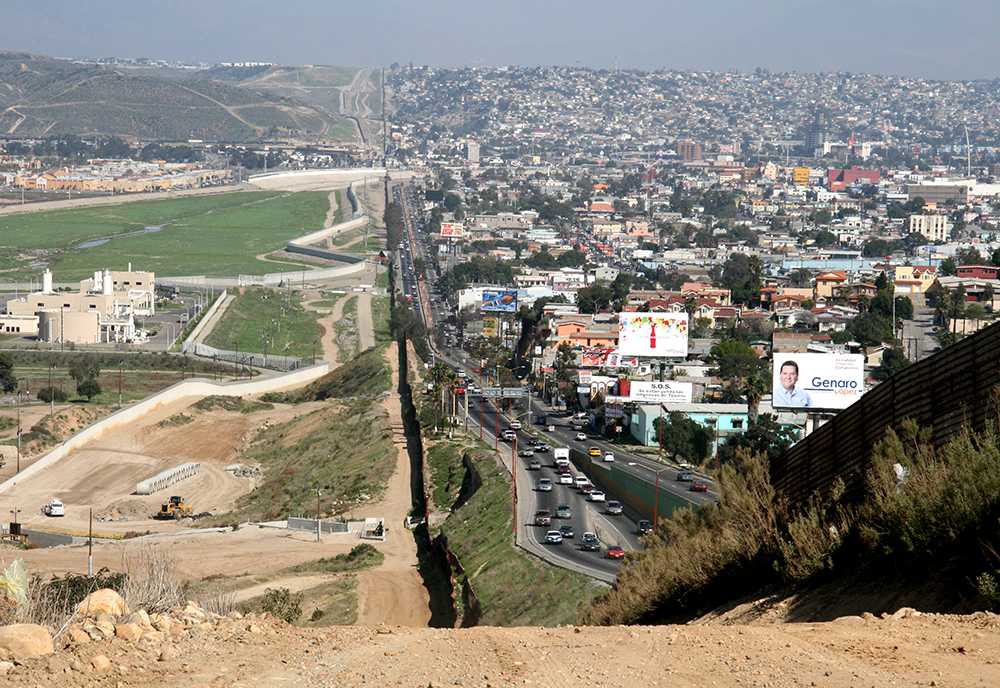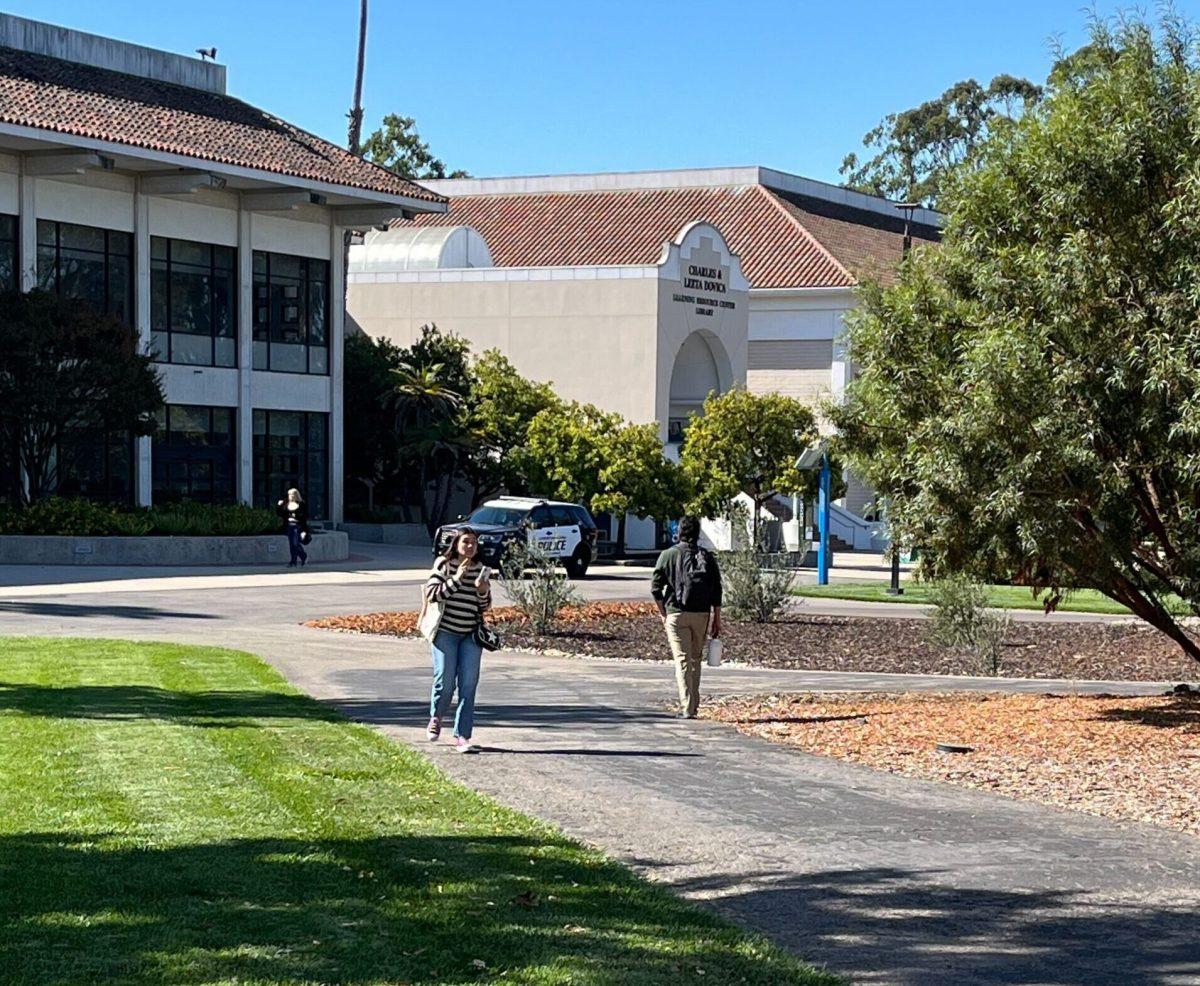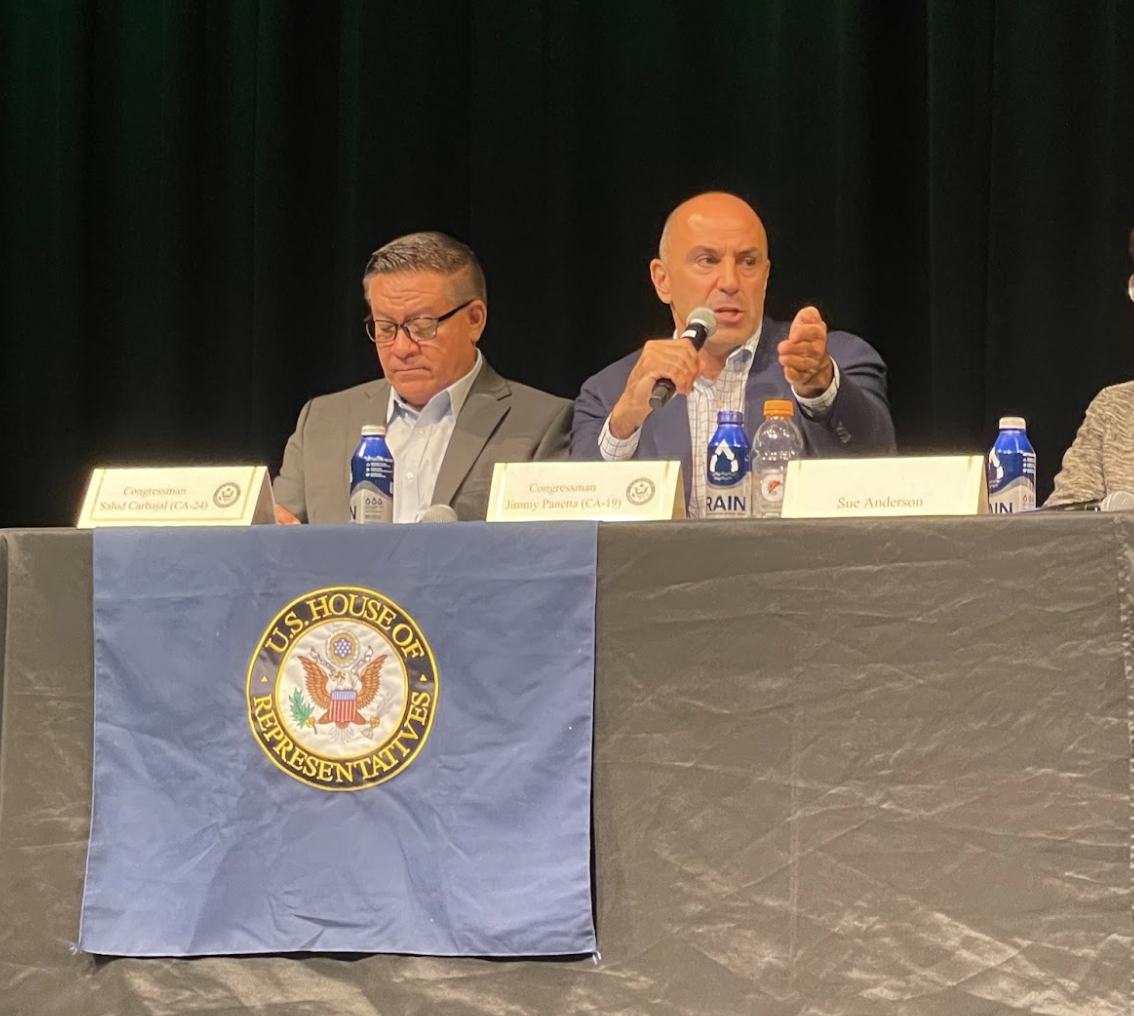By Chris Bremer
Digital Communications Editor
A surge in immigration raids nationwide led to the arrest of hundreds, including four undocumented locals living in the Central Coast, following President Trump’s executive order to build a wall.
The encroaching raids, sweeping new immigration policies and the prospect of a wall have sparked fear and concern in people across the country, including Cuesta students.
“I’m actually scared for this to happen because I know that if they build the wall I won’t be able to see family members that I’ve seen in the past years,†said Ruth Reyna, a first year Cuesta student.
Around the country, 680 people have been arrested by Immigration and Customs Enforcement, including four people from neighboring town, Santa Maria, said Lori Haley, ICE spokeswoman. These were the first ICE raids of the new administration, coming on the heels of Mr. Trump signing the “Border Security and Immigration Enforcement Improvements†executive order on Jan. 25 – vowing to both heighten border security and to begin construction of a wall alongside the Mexican border.
Of the 161 individuals arrested between the Central Coast and Los Angeles regions, 94 percent reportedly have criminal records, ICE reports state.
All four individuals arrested in Santa Maria have a criminal background, Haley said. Three have been convicted with cases relating to domestic violence, and one has a prior driving under the influence conviction, she states.
“I can see why people are feeling scared,†said Erica Aquino, a fourth year psychology major at Cuesta College. “There’s already cases where [deportation] is happening so it makes people think: ‘If this is happening to other people then how can it not happen to me?’â€
On Feb. 20, the Trump administration intensified their policy on illegal immigration, sending orders to increase the number of ICE agents, enlist local law enforcement for aid, speed up deportations and to begin designing the border wall, said memorandums from the newly appointed Secretary of Homeland Security, John Kelly.
Fueling fears even more, some believe the Department of Homeland Security’s sweeping plan would enable the deportation of undocumented people even if they do not have a criminal record.
These developments could affect both countries’ economies.
The economies of the U.S. and Mexico are deeply integrated; Mexico is the U.S.’s third largest goods trading partner, and traded over $531 billion worth of goods in 2015, the office of the United States trade representative states. Yet some feel these economic complexities are only part of the concern relating to this executive order.
“This would have an incredibly chilling effect between our countries,†said Brian Kreowski, a local lawyer and political science instructor for Cuesta College. “President Trump is choosing isolationism.â€
The Trump administration’s immigration policies have already caused strain between the U.S. and Mexico.
“I regret and condemn the United States’ decision to continue with the construction of a wall that, for years now, far from uniting us, divides us,†President Enrique Peña Nieto of Mexico said, shortly after responding to President Trump’s executive order by canceling a planned meeting.
The “Border Security and Immigration Enforcement Improvements†executive order is not yet fully in effect, and must undergo several more steps. This includes getting the order to pass through the U.S. code on aliens and nationalities, Title 8.
“First it has to be decided if the executive order is constitutional or not,†Kreowski said. “Let’s say somehow it passes, then someone will almost certainly challenge the ruling under Title 8.â€
If the order passes this step, it is then Congress’s job to agree on a way to finance the order. Although all proposed payment plans for the wall are currently speculative, there are estimates for how this administration will finance the executive order.
A $120 bill per U.S. household was speculated by CNBC two days after the signing of executive order. With a Republican majority in congress, the passing of legislation to increase taxes would counter their party’s long standing platform policy.
One of the most famous claims made during the 2016 presidential campaign was Donald Trump’s promise that Mexico would pay for the wall. How this would happen, exactly, is still unknown.
The day after this executive order was signed, Press Secretary Sean Spicer stated that the president is considering a 20 percent tax on all goods imported from Mexico, according to a pool report from the New York Times.
These new immigration policies have hit home with some Cuesta students.
“It’s sad to know that they [the Trump administration] are doing this because we have family in Mexico that want to come here to work,†said Reyna. “They’re not going to do anything violent and they won’t come here to steal, like Trump said.â€
To read the complete articles from Cuesta in the time of Trump package check out the Cuestonian newspaper March 7.














